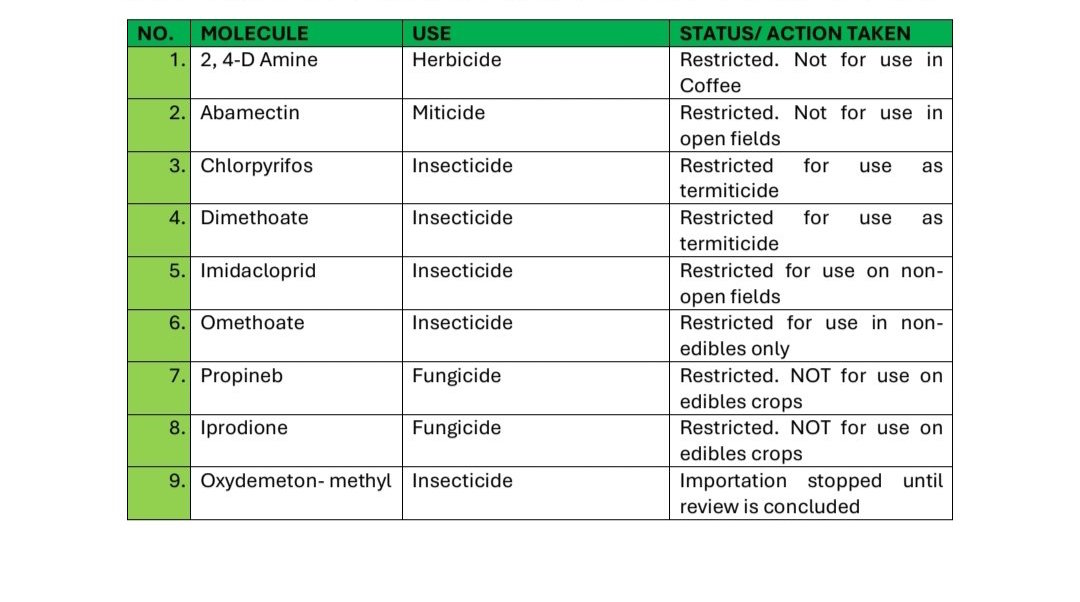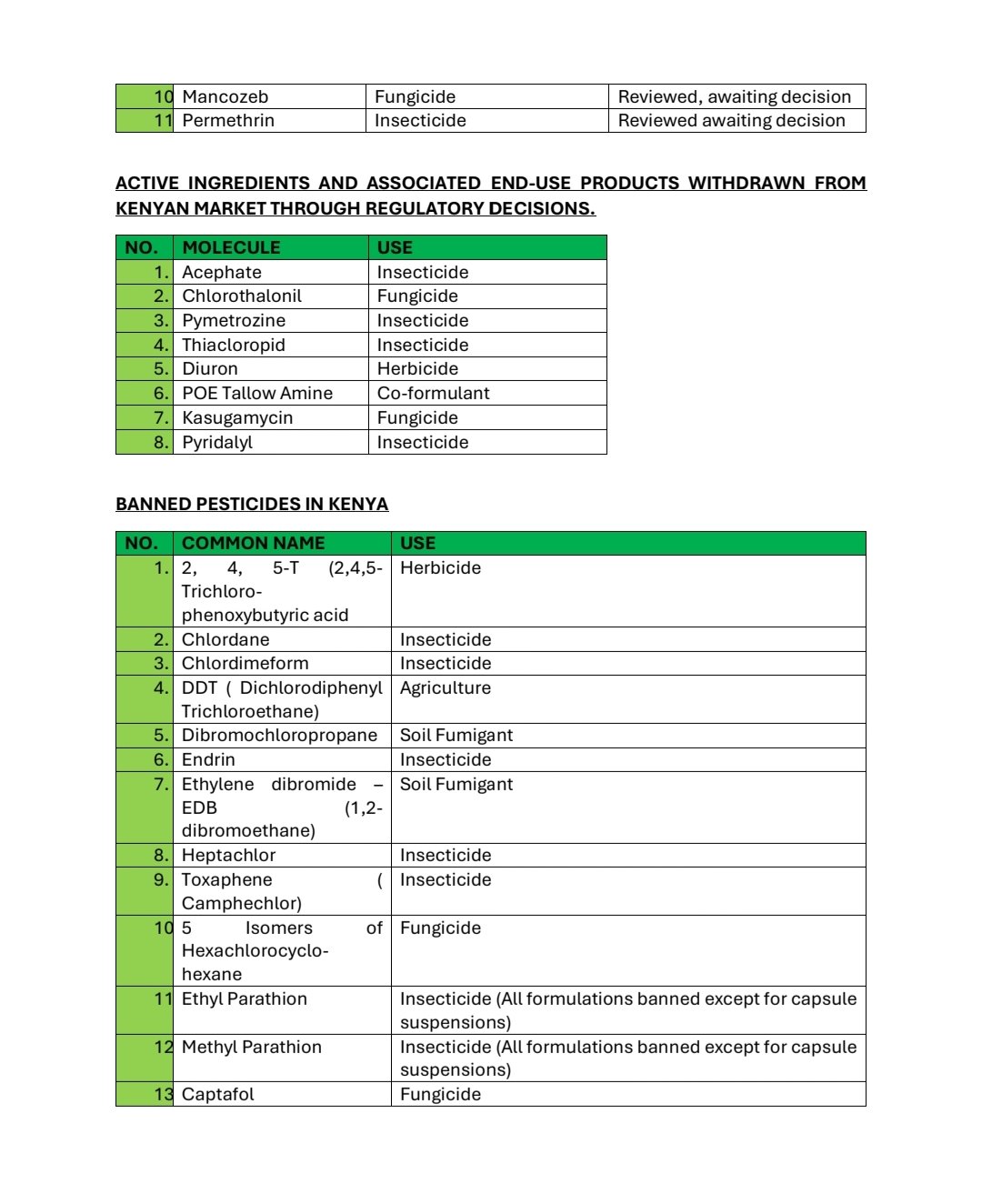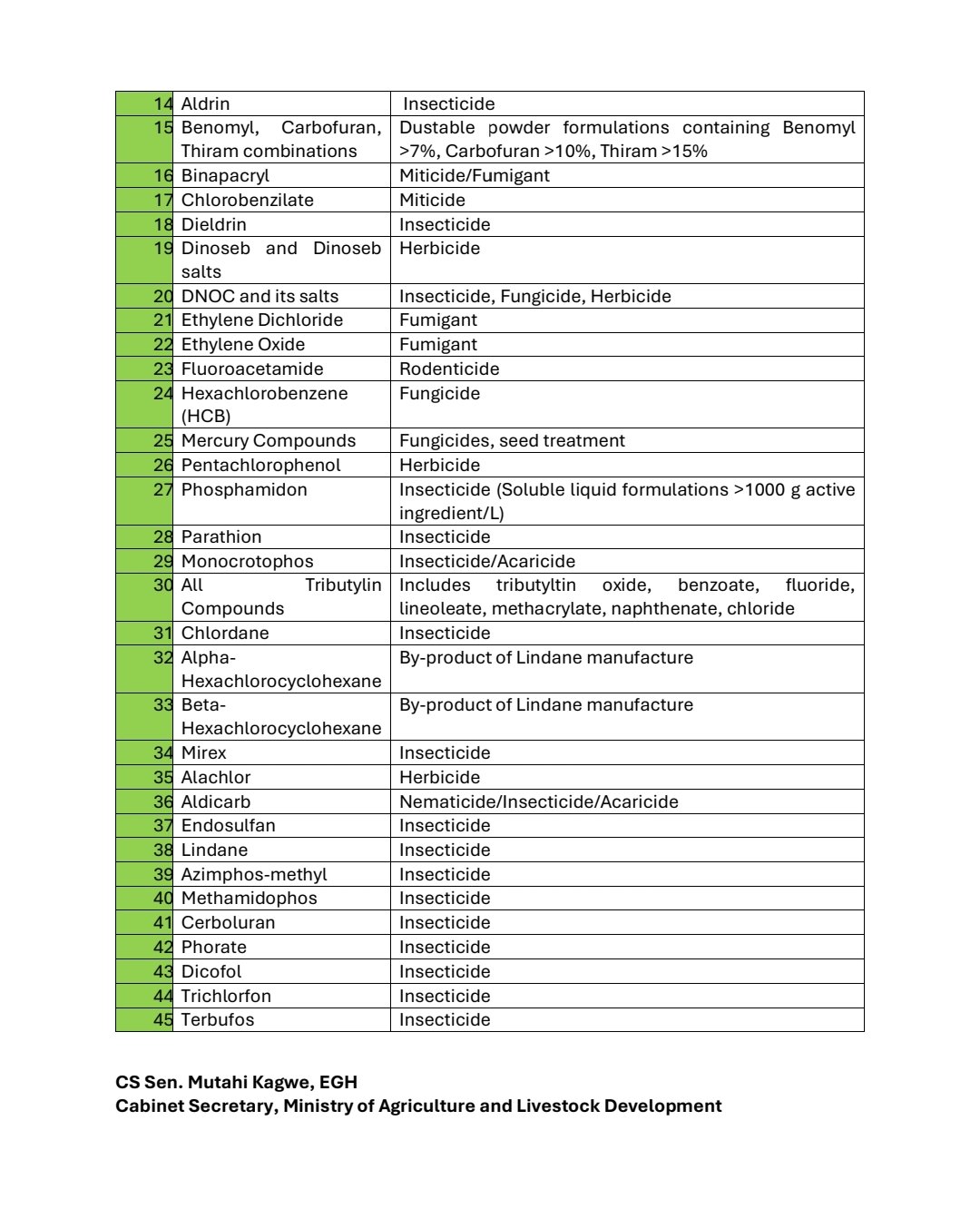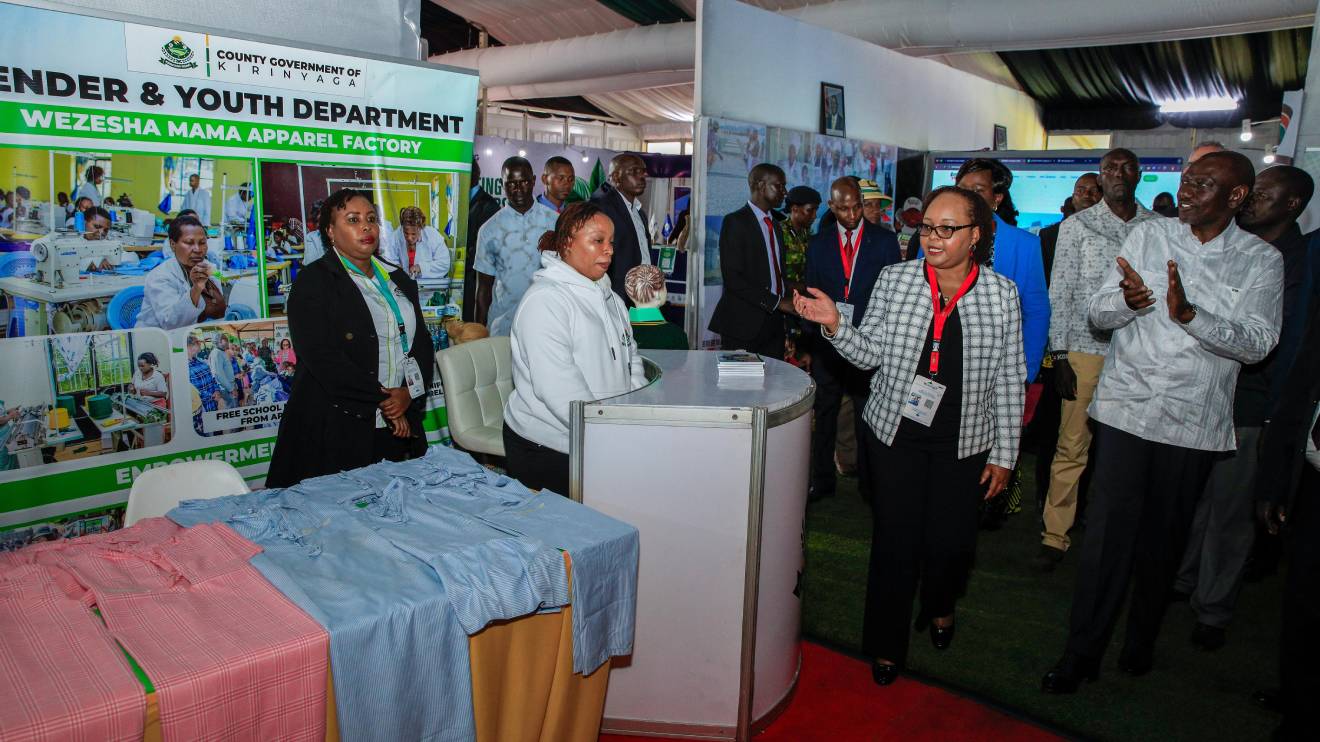Kenya has moved to ban the use of 77 pesticide products and impose new restrictions on 202 others, as part of a sweeping regulatory overhaul aimed at safeguarding human health, agriculture, and the environment.
The Ministry of Agriculture and Livestock Development Mutahi Kagwe made the announcement following what it described as a comprehensive review of all pesticide active ingredients registered in the country.
The Pest Control Products Board (PCPB), which is responsible for ensuring the safety of pest control substances in Kenya, led the review.
According to the Ministry, the exercise covered 430 end-use products and was based on scientific data from applicants as well as regulatory decisions from international agencies regarding the molecules in question.
“Following scientific assessments and stakeholder consultations, we have identified certain active ingredients and associated end-use products that pose unacceptable risks to human health, crops, livestock, and the environment,” Kagwe stated.
Read More
The ministry confirmed that alongside the 77 products removed from the market, 202 will face usage restrictions on various crops. An additional 151 products remain under review, with a decision expected by December 2025.
Until then, both their importation and use will not be permitted.
In an effort to further tighten the country’s pest control regulations, the Ministry also revealed progress on legislative reforms.
“Further, the Ministry has reviewed the Draft Pest Control Products Bill to enhance the regulation of PCPs. The bill has already been approved by the Cabinet and will soon be in parliament,” the ministry noted
The statement outlined several key measures now in force to ensure that only safe products are allowed in Kenya.
These include the requirement that “all PCP products considered for registration in Kenya must be registered in their country of origin” and that “no pest control products banned on the international level under multilateral environmental agreements shall be registered for use in Kenya.”
Additionally, the importation of any molecule under review that has not been approved in the European Union, United States of America, Australia, or Canada will be halted until the review is complete.
“This action is part of our continuous efforts to align Kenya's agricultural practices with international best standards, ensure food safety for all Kenyans, and promote sustainable agriculture,” the Ministry stated, reaffirming its pledge to update its regulatory framework based on scientific evidence and international trends.
Farmers, distributors, and all relevant stakeholders have been urged to observe these new regulations without exception and to turn to safer, environmentally friendly alternatives.
The Ministry assured that it remains committed to backing these efforts through education, extension services, and the promotion of integrated pest management.
Below is a schedule of the various active ingredients and molecules reviewed and restricted by the PCPB.














